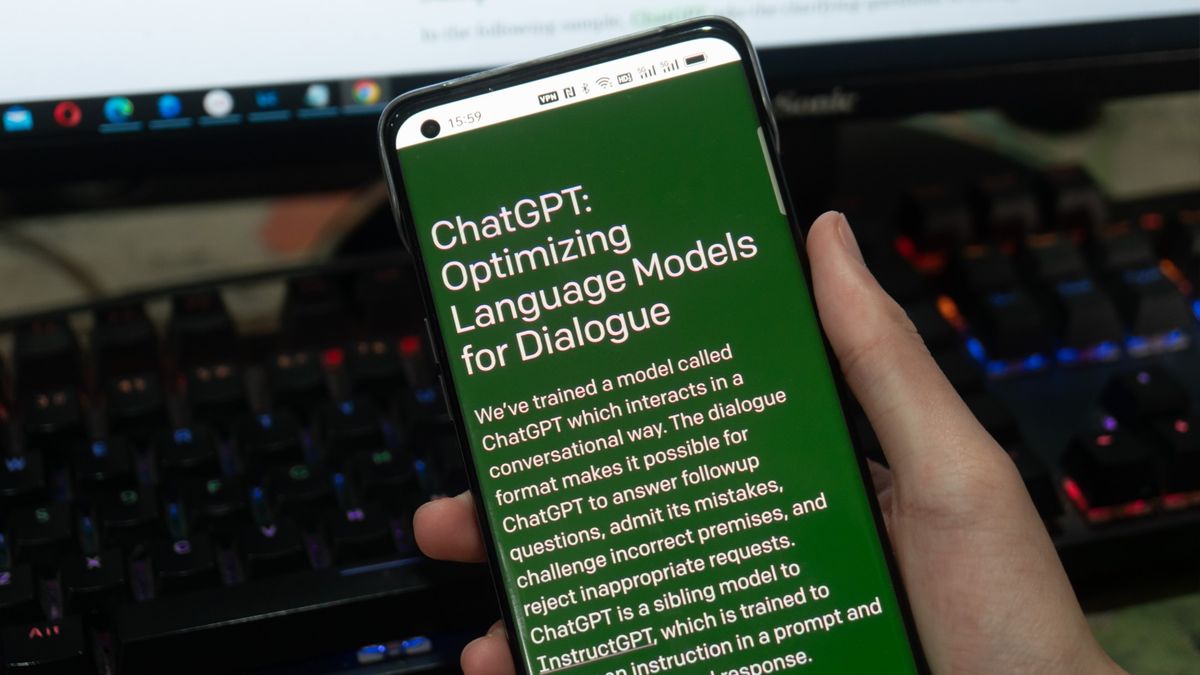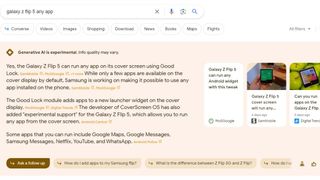
OpenAI could be about to take on Google with the launch of a new search engine based on ChatGPT technology.
Google has dominated the search market for more than two decades, accounting for 90% of all global searches, but will its caution about generative AI be its downfall? This caution could leave room for a new player that combines the understanding of AI with the breadth of data found online.
Very little is known about the rumor search engine, apart from the fact that it will be based on asking questions and interacting with an AI model using natural language. This is similar to how Perplexity and Google Gemini work: bringing live data to AI.
The rumors stem from the registration of search.chatgpt.com. Reports suggest that OpenAI is planning a big announcement on May 9 and that could very well be the new search engine – although OpenAI could be even more vocal than Apple about new products.
Why does OpenAI look at search?

There is some live search functionality built into ChatGPT through its partnership with Microsoft Bing, but it has always been more of an “add-on” than a deep integration and as a result has always been somewhat spotty and unreliable.
The intersection of LLMs plus search I don’t think anyone has cracked the code yet. I would really like to do that, it seems cool.
Sam Altman
During an interview with Lex Fridman last month, OpenAI CEO Sam Altman suggested that ChatGPT could be the future of search, with deep integration between LLM and search.
He said: “If we can build a better search engine than Google, we should,” but added that this would underestimate what AI can actually be. “Google shows you 13 ads and ten blue links, which is one way to find information, but what excites me is that there may be a much better way to help people find information and act on it.”
“It might be interesting to say, ‘How do we help you find the information you need, how do we help create it in some cases, or how do we direct you to it in other cases,’” Altman added.
He said integrating search into ChatGPT is an example of something cool to do. “The intersection of LLMs plus search. I don’t think anyone has cracked the code yet. I would really like to do that, it seems cool.”
How can an OpenAI search engine work?
The new ChatGPT search does away with the ‘just call conventional search and summarize with LLM’ wrappers. Why? It requires actions. Try searching “What did the most popular post in today’s hacker news say?” and you will see the difference. If you simply translate that to Google… pic.twitter.com/Ynqs44cP2jMay 3, 2024
There are a few ways OpenAI can work with search. Perplexity takes a chatbot approach, allowing users to ask questions and then display AI-generated data and search results.
Google Gemini is more of a pure chat result, offering analytics from the AI and links to sources for that information, as well as a Google search link for the same terms. Google also has the Search Genative Experience experiment that creates AI summary results.
Rumors I’ve seen suggest that OpenAI’s approach will be closer to Google Gemini, built into ChatGPT but with more live data. For example, a user can ask a question about the song that is currently top on the billboard list, and the result will simply be displayed without any delay or caching.
What are the benefits of AI search?

One of the biggest drawbacks to large language models is the deadline for information. This is tied to the point at which the training process is complete and no new information can be added.
There are a few ways to address this issue, including refining and expanding the context window so users can enter their own data sets, but the best is live web access.
Google, Bing and Perplexity have their own spiders that constantly crawl the internet and update databases with new results and pages. Some perform better than others.
This helps overall AI performance because this data can be fed back to the chatbot, allowing it to retrieve information in real-time and then create analysis based on the training data combined with the search results. But to work well, deep integration is required.
Leave a Reply